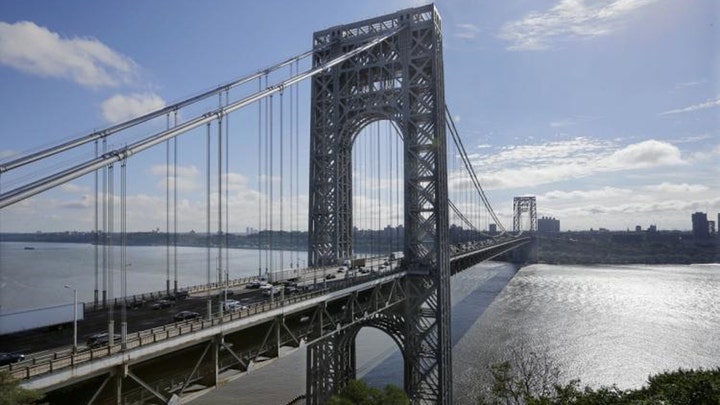Fox News Flash top headlines for May 7
Fox News Flash top headlines are here. Check out what's clicking on Foxnews.com.
Former New Jersey Gov. Chris Christie claimed vindication on Thursday after the U.S. Supreme Court threw out the convictions of two political allies involved in the 2013 “Bridgegate” scandal, slamming the Justice Department under former President Obama for the “political crusade” that helped derail Christie’s presidential bid in 2016.
In its ruling on the “Bridgegate” scandal – which involved onetime Christie deputy chief of staff Bridget Kelly and Bill Baroni, a Christie appointee to the Port Authority, creating a traffic jam on the George Washington Bridge – the Supreme Court noted that the move was political payback against the mayor of Fort Lee, N.J., for not supporting Christie’s reelection campaign. The problem, the court pointed out, is that this is not a violation of the federal fraud statutes under which the defendants were charged.
Christie argued in a post on Twitter Thursday that the court’s unanimous ruling to toss Kelly and Baroni’s convictions shows that former United States Attorney for the District of New Jersey Paul Fishman was “motivated by political partisanship and blind ambition” when he prosecuted Kelly and Baroni.
READ: SUPREME COURT RULING IN FAVOR OF ‘BRIDGEGATE’ DEFENDANTS
“The leadership of the Obama administration is also culpable for permitting this misconduct to happen right under their noses, authorizing Paul Fishman to weaponize the office for political and partisan reason,” Christie said in a statement posted on Twitter. “This case was driven by a U.S. Attorney and Justice Department in search of a predetermined and biased outcome.”
Christie added: “In recklessly pursuing that outcome, they violated the oath sworn by every member of the Department of Justice.”
President Trump also weighed in on the Supreme Court's ruling - congratulating Christie and criticizing Democrats for "getting caught doing very evil things" in a series of tweets he sent out on Thursday afternoon.
In its ruling, the Supreme Court noted that the problem with the convictions for the ex-Christie aides is that the goal of the scheme was not to obtain money or property, which is a necessary element of the federal fraud statutes involved, but instead political retribution.
Emails showed that Kelly wanted to “creat[e] a traffic jam that would punish” the mayor of Fort Lee and “send him a message," and that as a cover for this, Kelly, Baroni, and Port Authority official David Wildstein said the lane closures were part of a traffic study, even asking the Port Authority for data after the fact in order to back up the story. Wildstein pleaded guilty to conspiracy charges, while Kelly and Baroni were convicted by a jury.
The result of the lane realignment was four days of traffic jams. A fictitious traffic study was used as cover for the change, but prosecutors said the real motive was political payback. At one point, Kelly wrote in an email: “Time for some traffic problems in Fort Lee.”
CLICK HERE TO GET THE FOX NEWS APP
Federal prosecutors claimed that the fraud statutes were satisfied because Kelly and Baroni were trying to commandeer physical parts of the bridge, and to obtain Port Authority funds necessary to pay traffic engineers for the study and back-up toll collectors to make the lane closure possible.
"We cannot agree," Justice Elena Kagan wrote in the court's unanimous opinion., explaining that the lane closure "was a quintessential exercise of regulatory power," not a scheme to obtain property, and that taking Port Authority funds to pay for the closures and study "was incidental to" their plot, not the objective.
"[N]ot every corrupt act by state or local officials is a federal crime," Kagan concluded. "Because the scheme here did not aim to obtain money or property, Baroni and Kelly could not have violated the federal-program fraud or wire fraud laws."
Christie has denied knowing about the plan for gridlock ahead of time or as it was unfolding. Trial testimony contradicted his account, but the scandal helped derail his 2016 presidential bid.
Fox News’ Ronn Blitzer and The Associated Press contributed to this report.






